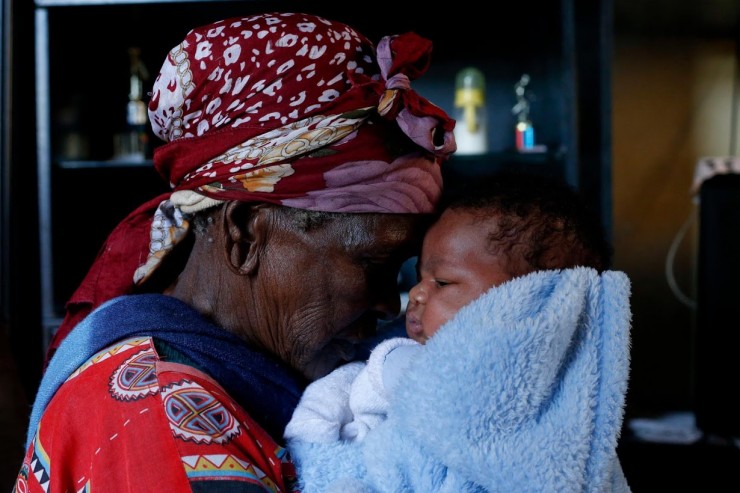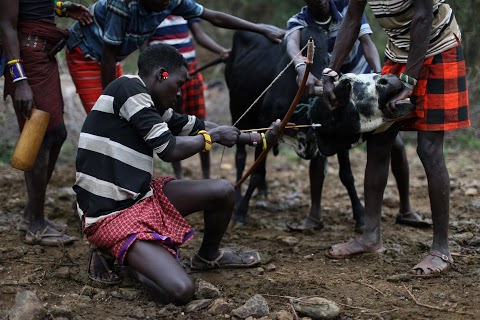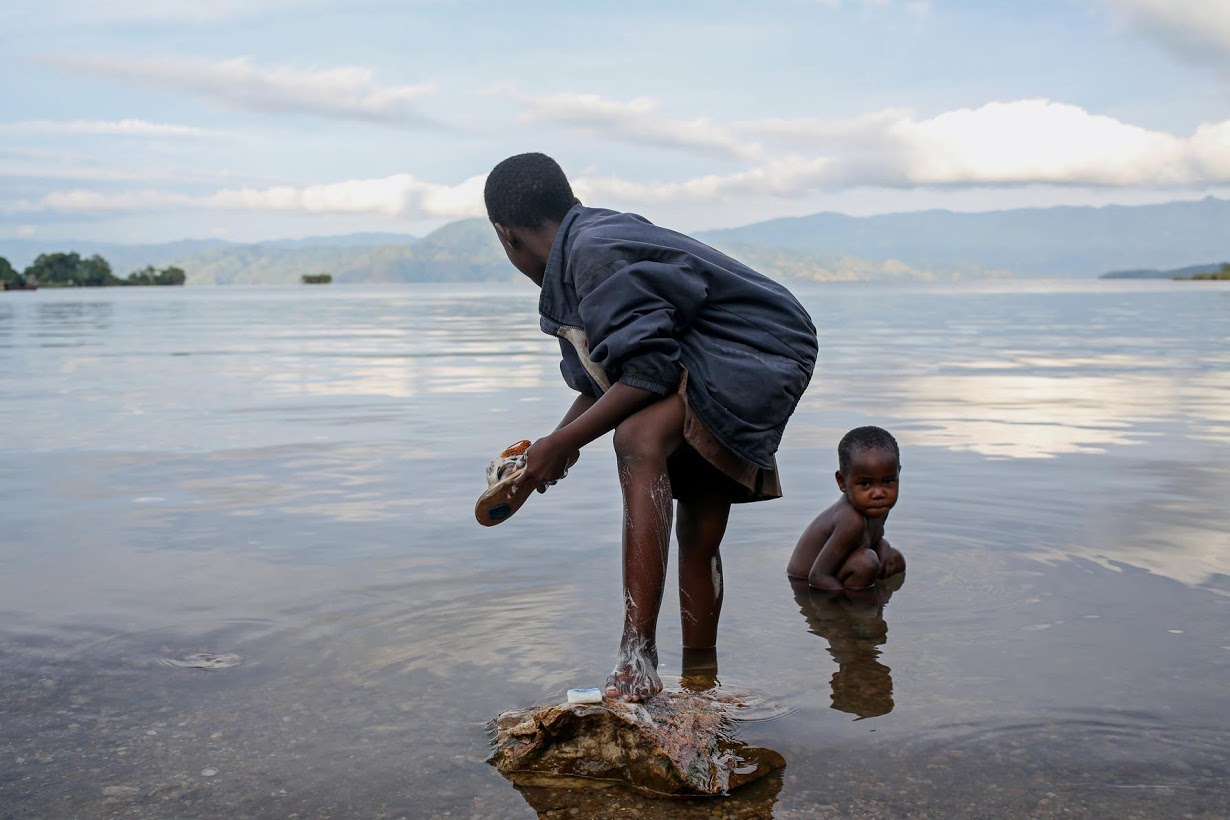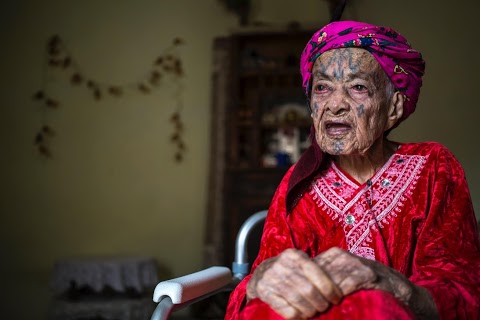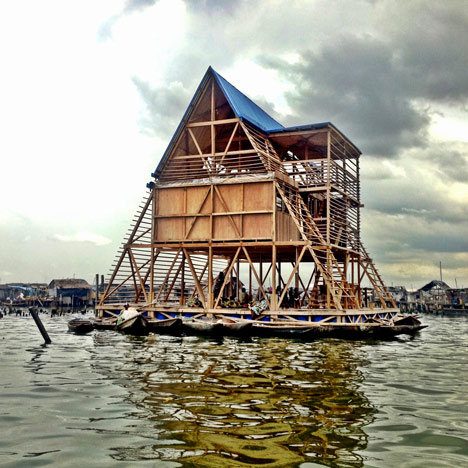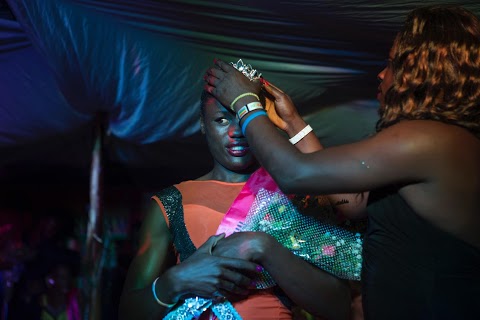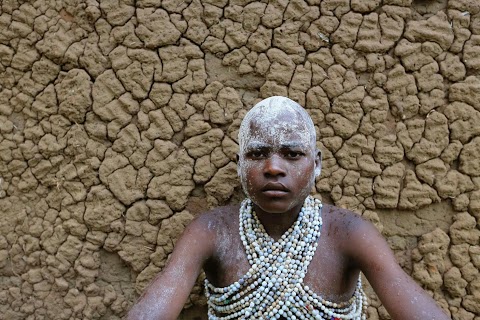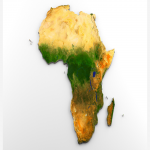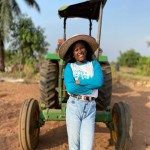90-year-old Thumekile Mthiyane and her extended family live on a small piece of land dotted with brick buildings and a rondavel, a traditional round building with a conical roof, where the family still cooks on an open fire.
Mthiyane, who is a grandmother to 18 and great-grandmother to 14, comes from Zululand, a district that stretches inland to the heart of the province and the kingdom of Zulu monarch Goodwill Zwelithini.
David, one of her six children, lives with her and their extended family.
The family is typical of many South Africans, for whom the end of apartheid in 1994 has brought only modest economic gains. Like many, their lives are enriched by modern and traditional cultures.
Central to family life is Christianity and David, 61, leads a church on Saturdays in a small school classroom. A rusted table covered in a lace cloth serves as an altar.
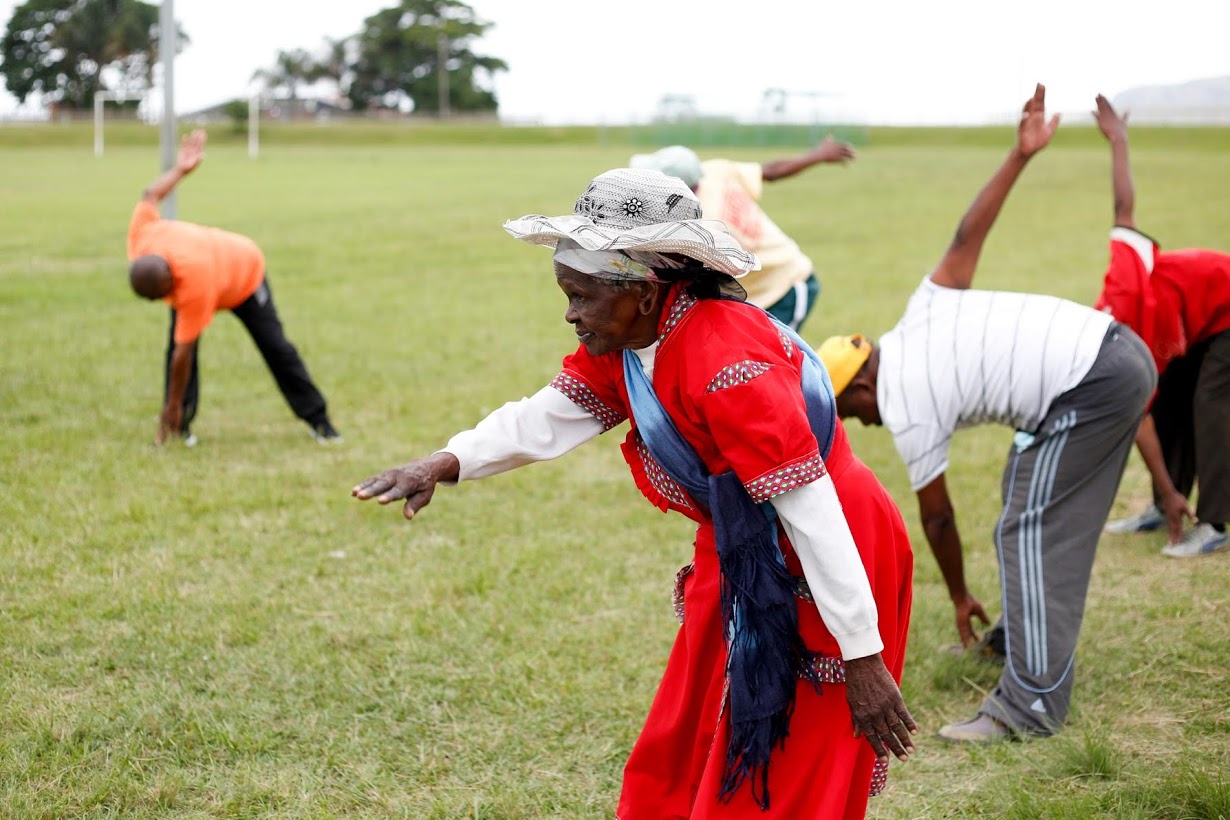
Together with his son Sibusiso, which means blessing in Zulu, they preach in white garments and carrying a wooden staff at the Apostolic Orthodox Church.
David's family straddles Zulu traditions and Christianity. He said that, while Zulu traditions are often aligned to his Christian faith, it is faith that decides how they live.
Sibusiso, who is an elder in his church, is also studying teaching at the University of KwaZulu Natal. The Zulu, an ethnic group of Southern Africa, originate from KwaZulu-Natal.
The 27-year-old, who speaks modern isiZulu, said he often has to ask his father to translate the traditional isiZulu that his grandmother speaks.
Education is important to Sibusiso's grandmother who herself never had formal schooling.
In a country where more than 27 percent of the population is unemployed and much of the economy is still in the hands of the white-minority as it was under apartheid, education offers a chance at a better life for many young black South Africans.
Mthiyane said it would make her happy to see her grandchildren educated.
